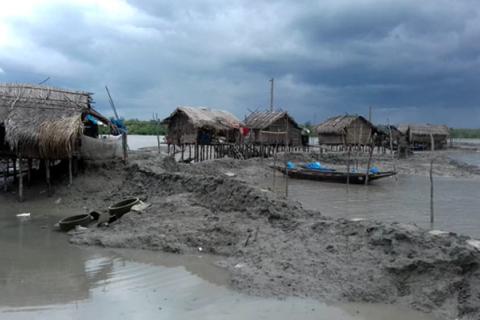Loss and Damage: Erosion of Nepal’s Life, Land and Beauty Is Deep and Irreparable
Life-threatening floods from bursting glacial lakes are just one of the many impacts of climate change that are leaving the people of Nepal unable to cope. Guest blogger Shreya K.C. calls on world leaders to replace fake handshakes with concrete action.
Main photo: Sikles village, in Kaski district, Nepal (Photo: copyright Maila Dai)












